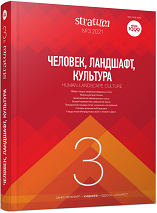Два ритуальных клада эпохи Митридатовых войн из Нижнего Подонья
Two Ritual Deposits from the Time of the Mithridatic Wars from the Lower Don Region
Author(s): Vyacheslav P. Glebov, Anton V. DedyulkinSubject(s): History, Archaeology, Ancient World
Published by: Издательский дом Stratum, Университет «Высшая антропологическая школа»
Keywords: Early Sarmatian culture; votive hoards; Northern Black Sea region; Galatians; Mithridates VI Eupator;
Summary/Abstract: The article is about two ritual deposits of the 2nd—1st centuries BC from the Lower Don region. The first votive hoard was found in 2018 in the inter-mound space of Turbuta III burial ground and transferred to the Novocherkassk Museum of the History of Don Cossacks. The complex consisted of a crumpled bronze situla and helmet, a set of silver phalerae and a frontlet, as well as six sets of bits and cheekpieces. In 2016, information about another ritual deposit from illegal excavations in the Rostov region got on the Internet. Both complexes are very similar in composition, the nature of ritual damage, and the way things are placed. Phalerae and the frontlet from Turbuta III find close analogies in the well-known Starobelsk hoard. Obviously, in the Lower Don region, the same pattern can be traced as in the Northern Black Sea region — the connection of sets of phalerae with votive hoards. The helmets from both hoards are later versions of the Celtic helmets with a reinforced crown. It is difficult to determine unambiguously whether these helmets were made by Celtic armourer, or in a workshop of one of the Hellenistic kingdoms according to Celtic patterns. Situlae are believed to have been part of Roman military equipment. Probably, objects from both ritual deposits reflect participation of the Sarmatians in the Mithridatic wars, recorded in written sources.
Journal: Stratum plus. Археология и культурная антропология
- Issue Year: 2021
- Issue No: 3
- Page Range: 281-296
- Page Count: 16
- Language: Russian
- Content File-PDF

